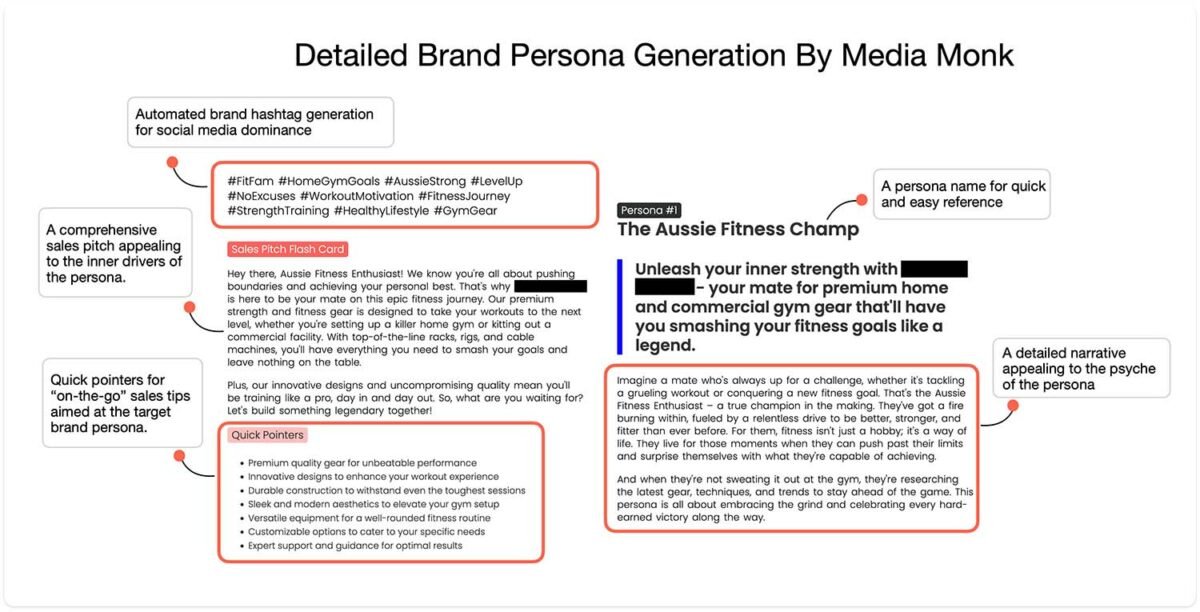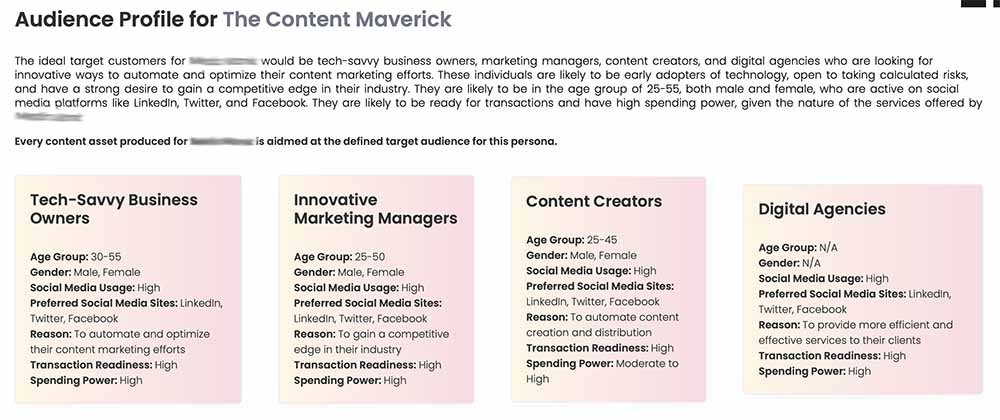Understanding your marketing target audience is crucial for crafting successful campaigns. By delving into target market research, consumer behavior, marketing segmentation, and customer demographics, you can tailor your strategies to resonate with your audience effectively.
Key Points
As a Content Maverick, you understand the importance of staying ahead in the ever-evolving marketing landscape. In this article, I will delve into the critical aspect of understanding your marketing target audience for better campaign outcomes.
Importance of Understanding Your Marketing Target Audience
Understanding your target audience also helps you to create buyer personas, which are semi-fictional representations of your ideal customers. By having a clear picture of your target audience, you can develop personas that outline their demographics, goals, challenges, and behaviors. This, in turn, enables you to craft targeted messaging that speaks directly to their needs and concerns.

Failing to understand your target audience can lead to wasted resources, misallocated budget, and poor campaign performance. When you don’t know who your target audience is, you risk creating generic messaging that fails to resonate with anyone. This can result in low engagement rates, poor conversion rates, and a lack of return on investment.
Moreover, understanding your target audience helps you to stay ahead of the competition. By knowing your audience better than your competitors do, you can create campaigns that truly resonate with them, ultimately driving customer loyalty and advocacy. This, in turn, can lead to positive word-of-mouth, online reviews, and social media endorsements that further amplify your brand’s reach and credibility.
Utilizing Target Market Research for Insights
Conducting target market research involves gathering and analyzing data to understand your ideal customer. This includes identifying demographics, such as age, gender, and location, as well as psychographics, like values, interests, and lifestyle. By understanding these factors, you can create buyer personas that guide your marketing efforts and ensure that your message resonates with your target audience.
Market research also provides valuable insights into consumer behavior, including purchasing habits, pain points, and motivations. By understanding what drives your customers’ decisions, you can develop targeted marketing strategies that address their needs and concerns. This, in turn, can help increase brand loyalty and drive conversions.
Furthermore, target market research can help you stay ahead of the competition by identifying gaps in the market and opportunities to innovate. By analyzing your competitors’ strengths and weaknesses, you can differentiate your brand and develop unique selling propositions that set you apart from the competition. This can help you establish a strong market presence and attract a loyal customer base.
Analyzing Consumer Behavior for Effective Campaigns
Understanding consumer behavior is crucial for creating effective marketing campaigns. By analyzing consumer behavior, you can identify patterns and trends that can inform your marketing strategies. For instance, you can analyze customer purchase history to identify popular products or services, and tailor your marketing efforts to promote those offerings. Similarly, you can analyze customer engagement levels to identify areas where customers are most active, and focus your marketing efforts on those channels.

Consumer behavior analysis can also help you identify pain points in the customer journey. By analyzing customer complaints, feedback, and reviews, you can identify areas where customers are experiencing friction or dissatisfaction. This information can be used to make targeted improvements to the customer experience, leading to increased loyalty and retention. For example, if customers are consistently complaining about long shipping times, you can prioritize improving your logistics and shipping processes to reduce wait times.
Moreover, consumer behavior analysis can help you stay ahead of the competition. By analyzing market trends and consumer preferences, you can identify emerging opportunities and adjust your marketing strategies accordingly. For instance, if you notice a growing trend towards sustainability, you can adjust your marketing efforts to highlight your brand’s eco-friendly practices and appeal to environmentally-conscious consumers. By staying attuned to consumer behavior, you can stay one step ahead of the competition and remain relevant in a rapidly changing market.
The Role of Marketing Segmentation in Reaching Your Audience
Effective marketing segmentation involves identifying the most relevant characteristics that define your target audience, such as demographics, behaviors, or preferences. By doing so, you can create distinct segments that share similar needs, wants, and pain points. This, in turn, enables you to develop targeted messaging and content that resonates with each segment, increasing the likelihood of conversion and brand loyalty.

One of the primary benefits of marketing segmentation is that it allows you to prioritize your resources on the most valuable segments. By allocating your budget and efforts on the segments that are most likely to drive revenue and growth, you can maximize your return on investment (ROI) and optimize your marketing spend. This data-driven approach enables you to make informed decisions, rather than relying on assumptions or intuition.
Moreover, marketing segmentation is not a one-time exercise, but rather an ongoing process that requires continuous refinement and adaptation. As your target audience evolves, their needs and preferences change, and your segmentation strategy must adapt to these shifts. By regularly reassessing and refining your segments, you can ensure that your marketing efforts remain relevant, effective, and aligned with your audience’s evolving needs.
Understanding Customer Demographics for Personalized Marketing
For instance, understanding the age demographics of your target audience can help you tailor your messaging and channels to effectively reach them. For example, if your target audience is primarily millennials, you may want to focus on social media campaigns, whereas an older demographic may respond better to email marketing or traditional advertising.
Geographic location is another crucial demographic factor to consider. By understanding where your target audience is located, you can create region-specific campaigns that take into account local preferences, cultural nuances, and regional trends. This can be particularly important for businesses with physical locations or those that offer location-based services.
Moreover, income level is a significant demographic factor that can influence purchasing decisions and behavior. By understanding the income demographics of your target audience, you can tailor your pricing strategies, product offerings, and messaging to resonate with their financial realities. This can help you create more effective pricing tiers, promotions, and loyalty programs that drive customer loyalty and retention.
In Closing
In conclusion, understanding your marketing target audience is the cornerstone of successful campaigns. By delving into target market research, consumer behavior, marketing segmentation, and customer demographics, you can create tailored strategies that resonate with your audience and drive meaningful results. Embrace the power of audience insights to elevate your marketing efforts and stay ahead in the competitive landscape.








